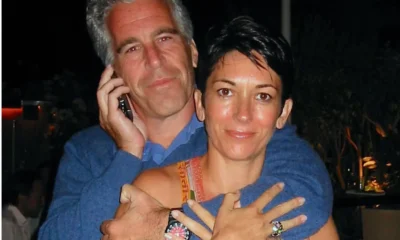News
How John Q Reflects the Tragic Killing of UnitedHealthcare CEO Brian Thompson
The 2002 film John Q, starring Denzel Washington, portrayed a desperate father taking a hospital hostage to save his son’s life after being denied a life-saving heart transplant due to insurance limitations. Over two decades later, the tragic killing of UnitedHealthcare CEO Brian Thompson has brought renewed attention to the frustrations and inequalities within the U.S. healthcare system, echoing the themes of the movie in an unsettling real-life scenario.
The Tragic Incident: Brian Thompson’s Death
On December 4, 2024, Brian Thompson, the CEO of UnitedHealthcare, was fatally shot outside the New York Hilton Midtown hotel as he arrived for an investor meeting. The attack was described as a “brazen, targeted shooting” by authorities. Key details include:
- Time and Location: The shooting occurred at 6:40 a.m. on West 54th Street.
- Nature of the Attack: Thompson was ambushed from behind and shot multiple times.
- Suspect Arrested: Luigi Mangione, a 26-year-old Ivy League graduate, was arrested in Pennsylvania after being identified through surveillance footage and forensic evidence.
Mangione was found in possession of a “ghost gun” with a silencer, fake IDs, and writings that expressed disdain for “corporate America” and frustration with the healthcare system. His notes reportedly referred to the killing as a “symbolic takedown” of perceived corruption in healthcare.
John Q: A Reflection of Healthcare Desperation
In John Q, Denzel Washington’s character represents many Americans who feel powerless within a profit-driven healthcare system. The movie highlights key systemic issues:
- Insurance Limitations: John Quincy Archibald’s employer-sponsored health plan didn’t cover his son’s life-saving surgery, leaving him no choice but to take extreme measures.
- Economic Inequality: The film underscores how socio-economic status can determine access to critical medical care.
- Public Outcry: In the movie, John becomes a folk hero for exposing the injustices of the healthcare system—a sentiment echoed in real-life frustrations with rising medical costs.
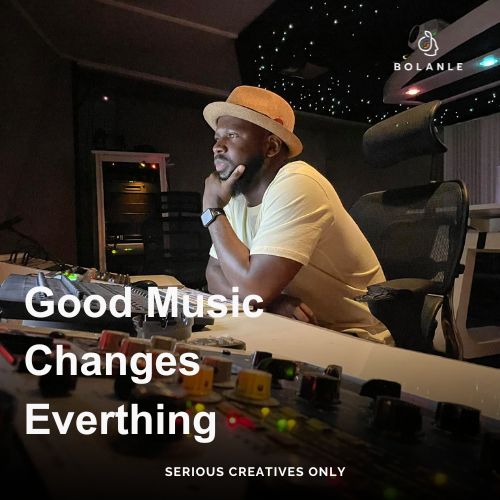
Real-Life Parallels and Healthcare Challenges
The tragic killing of Brian Thompson brings these issues into sharp focus. While Mangione’s alleged actions cannot be justified, they appear to stem from deep-seated anger over systemic problems that many Americans face daily:
- Rising Costs: In 2023, nearly 100 million Americans reported skipping or delaying medical care due to costs.
- Organ Transplants: Over 100,000 people remain on transplant waiting lists in the U.S., with 17 dying each day while waiting for organs.
- Public Distrust: A 2019 Gallup poll revealed that only 13% of Americans viewed health insurers positively.
Connecting Fiction and Reality
Both John Q and the tragic events surrounding Brian Thompson highlight the human toll of systemic failures in healthcare. While John Q dramatizes one man’s extreme response to injustice, Mangione’s alleged actions reflect how unresolved frustrations with healthcare can manifest in dangerous ways.

Moving Forward: Addressing Systemic Issues
The parallels between fiction and reality underscore the urgent need for reform:
- Affordable Care Act (ACA): While ACA reforms have expanded coverage and eliminated lifetime caps, gaps remain for millions of Americans.
- Universal Healthcare Advocacy: Proposals like “Medicare for All” aim to address inequities but face significant political hurdles.
- Corporate Responsibility: Healthcare companies must prioritize transparency and patient advocacy to rebuild public trust.
Conclusion
The tragic killing of Brian Thompson is a stark reminder of how deeply personal and emotional healthcare issues can be. While John Q offered a fictionalized account of one man’s fight against an unjust system, real-life events like this highlight the need for meaningful dialogue and systemic change. Reforming healthcare is not just about policy—it’s about addressing human suffering and ensuring that no one feels so desperate that they resort to violence or despair.
Bolanle Media is excited to announce our partnership with The Newbie Film Academy to offer comprehensive courses designed specifically for aspiring screenwriters. Whether you’re just starting out or looking to enhance your skills, our resources will provide you with the tools and knowledge needed to succeed in the competitive world of screenwriting. Join us today to unlock your creative potential and take your first steps toward crafting compelling stories that resonate with audiences. Let’s turn your ideas into impactful scripts together!
Business
Google Accused Of Favoring White, Asian Staff As It Reaches $28 Million Deal That Excludes Black Workers

Google has tentatively agreed to a $28 million settlement in a California class‑action lawsuit alleging that white and Asian employees were routinely paid more and placed on faster career tracks than colleagues from other racial and ethnic backgrounds.
- A Santa Clara County Superior Court judge has granted preliminary approval, calling the deal “fair” and noting that it could cover more than 6,600 current and former Google workers employed in the state between 2018 and 2024.

How The Discrimination Claims Emerged
The lawsuit was brought by former Google employee Ana Cantu, who identifies as Mexican and racially Indigenous and worked in people operations and cloud departments for about seven years. Cantu alleges that despite strong performance, she remained stuck at the same level while white and Asian colleagues doing similar work received higher pay, higher “levels,” and more frequent promotions.
Cantu’s complaint claims that Latino, Indigenous, Native American, Native Hawaiian, Pacific Islander, and Alaska Native employees were systematically underpaid compared with white and Asian coworkers performing substantially similar roles. The suit also says employees who raised concerns about pay and leveling saw raises and promotions withheld, reinforcing what plaintiffs describe as a two‑tiered system inside the company.
Why Black Employees Were Left Out
Cantu’s legal team ultimately agreed to narrow the class to employees whose race and ethnicity were “most closely aligned” with hers, a condition that cleared the path to the current settlement.

The judge noted that Black employees were explicitly excluded from the settlement class after negotiations, meaning they will not share in the $28 million payout even though they were named in earlier versions of the case. Separate litigation on behalf of Black Google employees alleging racial bias in pay and promotions remains pending, leaving their claims to be resolved in a different forum.
What The Settlement Provides
Of the $28 million total, about $20.4 million is expected to be distributed to eligible class members after legal fees and penalties are deducted. Eligible workers include those in California who self‑identified as Hispanic, Latinx, Indigenous, Native American, American Indian, Native Hawaiian, Pacific Islander, and/or Alaska Native during the covered period.
Beyond cash payments, Google has also agreed to take steps aimed at addressing the alleged disparities, including reviewing pay and leveling practices for racial and ethnic gaps. The settlement still needs final court approval at a hearing scheduled for later this year, and affected employees will have a chance to opt out or object before any money is distributed.
H2: Google’s Response And The Broader Stakes
A Google spokesperson has said the company disputes the allegations but chose to settle in order to move forward, while reiterating its public commitment to fair pay, hiring, and advancement for all employees. The company has emphasized ongoing internal audits and equity initiatives, though plaintiffs argue those efforts did not prevent or correct the disparities outlined in the lawsuit.
For many observers, the exclusion of Black workers from the settlement highlights the legal and strategic complexities of class‑action discrimination cases, especially in large, diverse workplaces. The outcome of the remaining lawsuit brought on behalf of Black employees, alongside this $28 million deal, will help define how one of the world’s most powerful tech companies is held accountable for alleged racial inequities in pay and promotion.
Entertainment
What We Can Learn Inside 50 Cent’s Explosive Diddy Documentary: 5 Reasons You Should Watch
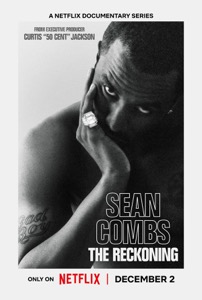
50 Cent’s new Netflix docuseries about Sean “Diddy” Combs is more than a headline-grabbing exposé; it is a meticulous breakdown of how power, celebrity, and silence can collide in the entertainment industry.
Across its episodes, the series traces Diddy’s rise, the allegations that followed him for years, and the shocking footage and testimonies now forcing a wider cultural reckoning.
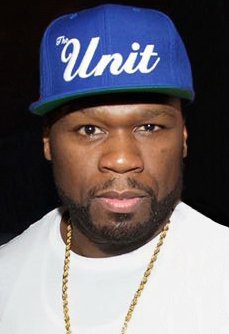
1. It Chronicles Diddy’s Rise and Fall – And How Power Warps Reality
The docuseries follows Combs from hitmaker and business icon to a figure facing serious criminal conviction and public disgrace, mapping out decades of influence, branding, and behind-the-scenes behavior. Watching that arc shows how money, fame, and industry relationships can shield someone from scrutiny and delay accountability, even as disturbing accusations accumulate.
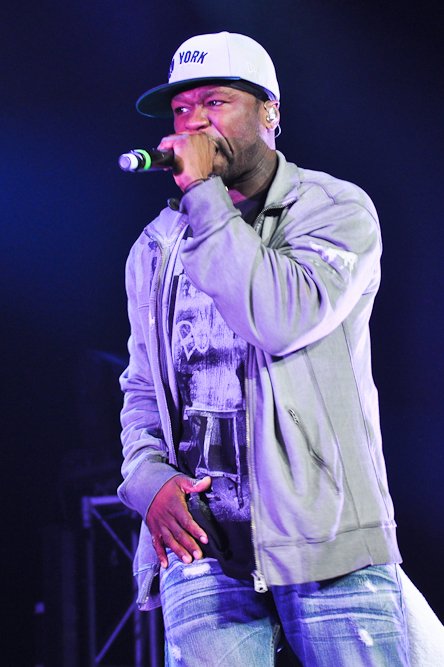
2. Never-Before-Seen Footage Shows How Narratives Are Managed
Exclusive footage of Diddy in private settings and in the tense days around his legal troubles reveals how carefully celebrity narratives are shaped, even in crisis.
Viewers can learn to question polished statements and recognize that what looks spontaneous in public is often the result of strategy, damage control, and legal calculation.
3. Survivors’ Stories Highlight Patterns of Abuse and Silence
Interviews with alleged victims, former staff, and industry insiders describe patterns of control, fear, and emotional or physical harm that were long whispered about but rarely aired in this detail. Their stories underline how difficult it is to speak out against a powerful figure, teaching viewers why many survivors delay disclosure and why consistent patterns across multiple accounts matter.
4. 50 Cent’s Approach Shows Storytelling as a Tool for Accountability
As executive producer, 50 Cent uses his reputation and platform to push a project that leans into uncomfortable truths rather than protecting industry relationships. The series demonstrates how documentary storytelling can challenge established power structures, elevate marginalized voices, and pressure institutions to respond when traditional systems have failed.
5. The Cultural Backlash Reveals How Society Handles Celebrity Accountability
Reactions to the doc—ranging from people calling it necessary and brave to others dismissing it as a vendetta or smear campaign—expose how emotionally invested audiences can be in defending or condemning a famous figure. Watching that debate unfold helps viewers see how fandom, nostalgia, and bias influence who is believed, and why conversations about “cancel culture” often mask deeper questions about justice and who is considered too powerful to fall.
Business
Luana Lopes Lara: How a 29‑Year‑Old Became the Youngest Self‑Made Woman Billionaire

At just 29, Luana Lopes Lara has taken a title that usually belongs to pop stars and consumer‑app founders.
Multiple business outlets now recognize her as the world’s youngest self‑made woman billionaire, after her company Kalshi hit an 11 billion dollar valuation in a new funding round.
That round, a 1 billion dollar Series E led by Paradigm with Sequoia Capital, Andreessen Horowitz, CapitalG and others participating, instantly pushed both co‑founders into the three‑comma club. Estimates place Luana’s personal stake at roughly 12 percent of Kalshi, valuing her net worth at about 1.3 billion dollars—wealth tied directly to equity she helped create rather than inheritance.

Kalshi itself is a big part of why her ascent matters.
Founded in 2019, the New York–based company runs a federally regulated prediction‑market exchange where users trade yes‑or‑no contracts on real‑world events, from inflation reports to elections and sports outcomes.
As of late 2025, the platform has reached around 50 billion dollars in annualized trading volume, a thousand‑fold jump from roughly 300 million the year before, according to figures cited in TechCrunch and other financial press. That hyper‑growth convinced investors that event contracts are more than a niche curiosity, and it is this conviction—expressed in billions of dollars of new capital—that turned Luana’s share of Kalshi into a billion‑dollar fortune almost overnight.
Her path to that point is unusually demanding even by founder standards. Luana grew up in Brazil and trained at the Bolshoi Theater School’s Brazilian campus, where reports say she spent up to 13 hours a day in class and rehearsal, competing for places in a program that accepts fewer than 3 percent of applicants. After a stint dancing professionally in Austria, she pivoted into academics, enrolling at the Massachusetts Institute of Technology to study computer science and mathematics and later completing a master’s in engineering.
During summers she interned at major firms including Bridgewater Associates and Citadel, gaining a front‑row view of how global macro traders constantly bet on future events—but without a simple, regulated way for ordinary people to do the same.

That realization shaped Kalshi’s founding thesis and ultimately her billionaire status. Together with co‑founder Tarek Mansour, whom she met at MIT, Luana spent years persuading lawyers and U.S. regulators that a fully legal event‑trading exchange could exist under commodities law. Reports say more than 60 law firms turned them down before one agreed to help, and the company then spent roughly three years in licensing discussions with the Commodity Futures Trading Commission before gaining approval. The payoff is visible in 2025’s numbers: an 11‑billion‑dollar valuation, a 1‑billion‑dollar fresh capital injection, and a founder’s stake that makes Luana Lopes Lara not just a compelling story but a data point in how fast wealth can now be created at the intersection of finance, regulation, and software.












